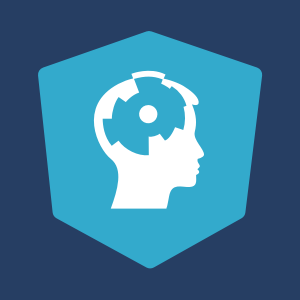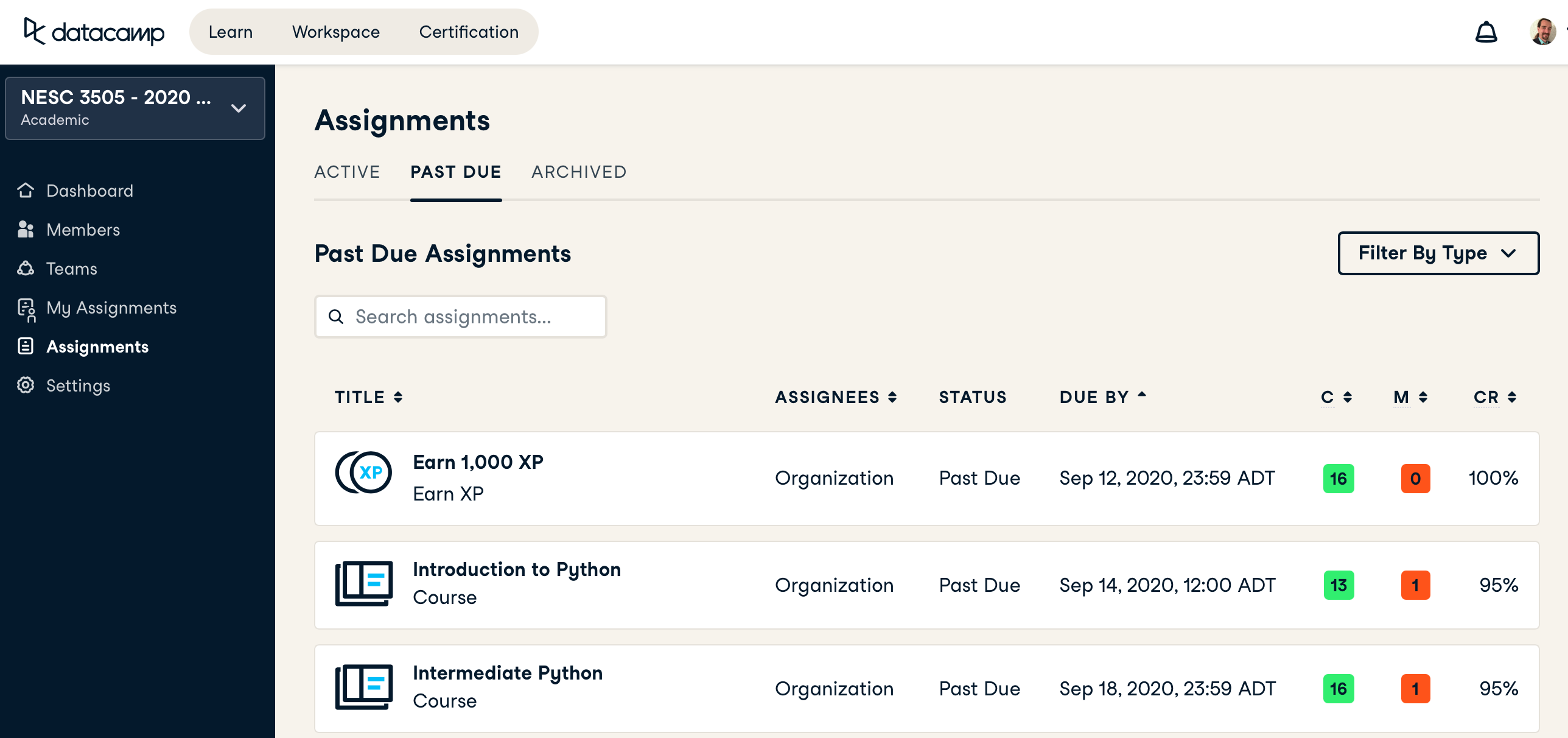
DataCamp#
DataCamp is a massive open online course (MOOC) platform for data science education, that operates as a for-profit company (technically, an xMOOC). DataCamp charges subscription fees to access their courses, however the platform is still considered “open” because they make it free to use by registered students, and professors can create customized curricula for classes and likewise use it for free. DataCamp reports having over 4.5 million learners on their platform.
DataCamp expresses a mandate of “democratizing” data science, by making training on the topic widely accessible and affordable. Their courses cover a wide range of topics, with everything from introductions to advanced courses in languages such as Python, R, and SQL, and on topics such as data visualization, statistics, and machine learning.
In this course, we will leverage the significant investment and expertise that DataCamp can provide. DataCamp will supplement the lessons for many individual classes in this course. Lessons involve a combination of short videos by professional instructors (university faculty and professional data scientists from industry), alternating with online, interactive exercises that evaluate your answers and give you feedback, and tips if you get stuck. Using DataCamp to teach you these most fundamental, cross-cutting aspects of data science allows your teaching team to focus on developing high-quality content specific to this course. Class assignments and tutorials will allow you to take the skills taught in DataCamp lessons, and figure out how to apply them to real-life movement-related data.
Completing the lessons only counts towards a small portion of your final grade, and only in a pass/fail manner (see the syllabus). However, the material covered in them is essential for you to learn, and the class assignments and exams (which are worth most of your grade) are designed with the content and sequence of delivery of the DataCamp lessons in mind. That said, there are many other great OERs (open educational resources) for learning data science in Python, including free online books and courses. You may wish to search for these, for example if you prefer written content to videos, or like to have written reference material rather than scanning back through a video to find a particular point.
Getting Started with DataCamp#
The teaching team will add all students registered in this class to the class DataCamp “group”, using the email address provided to us. You will receive an invitation email from DataCamp with a link that will allow you to set a password (use something secure!).
Once you have logged in for the first time, you will see a window like the one below, listing your active assignments; click on “DUE BY” to sort them by due date (which also indicates the sequence you should complete the assignments in). On the right, there is a trophy icon to see the leaderboard. This tracks all students’ progress and can be fun for you competitive types.

Each DataCamp assignment has a due date, which conveys when you need to have covered that material in order to keep up with the work in this class. Again, completion by class time does not contribute to your grade, but it does ensure you’re prepared for the class, and for the next upcoming assignment. Each assignment has an estimated duration (e.g., 4 hours for the first one - Introduction to Python) that you’ll see when you start it, and these seem pretty accurate. DataCamp will remember your progress, so you don’t have to complete an assignment — or even a chapter — all in one go. You can work in smaller or larger chunks at your preference, log off, and log back on to resume the course later.
You can navigate around a bit on the DataCamp site if you like. You can access other courses and lessons to see what’s out there. You can also explore other features of the site. For example, there are practice exercises you can do between lessons. You can always get back to your Assignments list by clicking on Learn -> Assignments.
DataCamp also offers a mobile app that you can use for the lessons. However, the small screen and touch interface are not ideal for the activities that involve typing and running code, so using the web browser on a computer is the best platform.
This section was adapted from Aaron J. Newman’s Data Science for Psychology and Neuroscience - in Python.